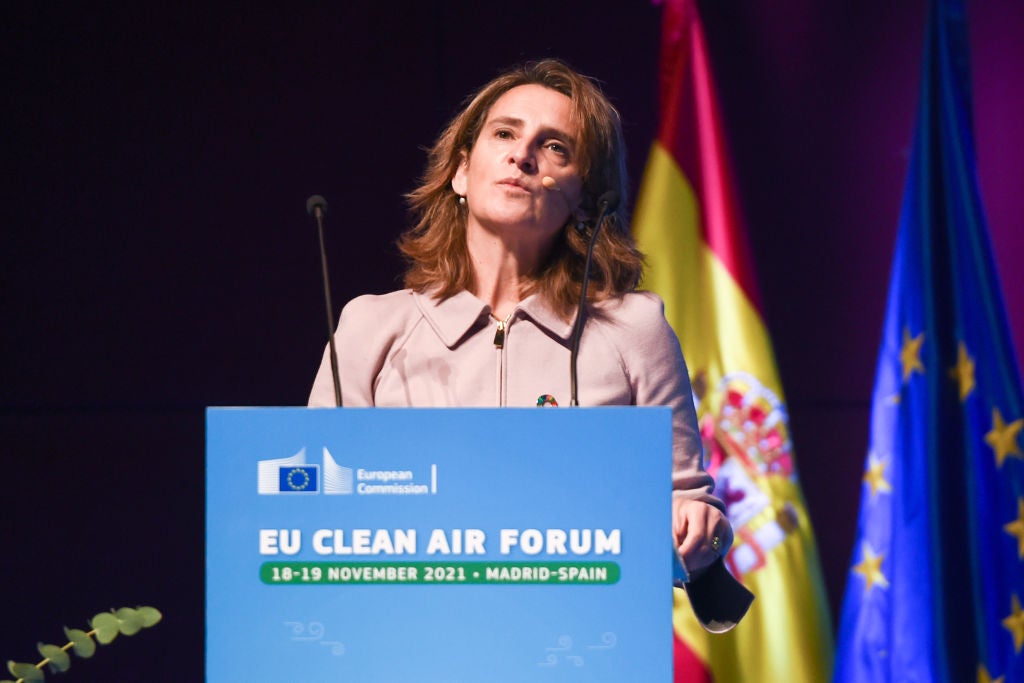
The European Parliament and Council reached a provisional agreement on Monday on rules for internal hydrogen and gas markets, paving the way for the development of new infrastructure.
The deal, initially proposed by the Commission two years ago, seeks to mobilise investment in gas infrastructure and scale up the amount of renewable and low-carbon gases in the EU’s energy mix as the bloc looks to move away from fossil natural gas use.
The directive is part of the EU’s hydrogen and gas markets decarbonisation package, which also includes a new regulation. Both the directive and the regulation are part of the ‘Fit for 55’ package, an EU climate law that seeks to reduce emissions in the bloc by at least 55% by 2030. The directive sets out investment rules and the regulation will determine market structure. Negotiations on the regulation are yet to be fully concluded due to a disagreement between the Council and Parliament over biogas targets and EU procurement of hydrogen.
Jens Geier, a Social Democrat from Germany and chief negotiator in the deal for the European Parliament, said that a deal on investment rules had been successfully met, which will make Europe “fit for hydrogen”. The agreement involved a last-minute tussle between France and Germany over whether hydrogen infrastructure ownership should be more heavily regulated than gas and electricity grids are currently, a rule initially proposed by the Commission.
Backed by a coalition of other member states, Germany, with its own net-zero plans heavily dependent on the scaling-up of hydrogen, came out on top.
“Investment hurdles in the Commission proposal that would have slowed down the ramp-up of hydrogen have been removed,” said Geier, referring to proposed “ownership unbundling” rules that would prevent network operators from owning gas and hydrogen infrastructure simultaneously.
Countries can now exempt gas grid operators from the requirement to invest in new hydrogen grids through a separate company to those already used to invest in gas, provided operators have less than 100,000 customers.
“This agreement… will boost the deployment of the emerging hydrogen sector, the transition of the gas sector towards renewable energy, and it also sets rules for consumer protection and strengthens security of supply. This is undoubtedly a big step closer to the EU’s goal of reaching climate neutrality in 2050,” said Teresa Ribera Rodríguez, Spain’s Ecological Transition Minister and Council representative on behalf of the Spanish EU presidency.
Climate experts remain sceptical about the overall outcome of the deal. Michaela Holl, senior advisor at German climate think-tank Agora Energiewende, told Euractiv: “The gas package deal is out of sync with Europe’s energy security and climate ambitions… It will impose unnecessarily high costs on taxpayers, make it hard for new renewable hydrogen and ammonia producers to enter the market and fail to clarify what counts as ‘low-carbon’ hydrogen and biomethane.”
She added that the agreement’s “biggest shortcoming is that it ignores the fundamental changes on Europe’s economy, energy market and infrastructure that will result from the rapidly shrinking fossil gas market”. Previous plans to include a road map for the decommissioning of residential gas grids, which will become redundant as household electrification ramps up, did not make it into the agreed law.
The Commission said that the agreement “provides arrangements on how disconnections could take place, in order to protect customers from the future decommissioning of the gas network or its repurposing to hydrogen”.
The provisional deal must now be formally adopted by both the Council and Parliament, although this is usually a rubber-stamping exercise that involves no changes to agreement terms. Formal approval is expected to come in March 2024, just ahead of Parliament recess for the European elections due to be held in June.



